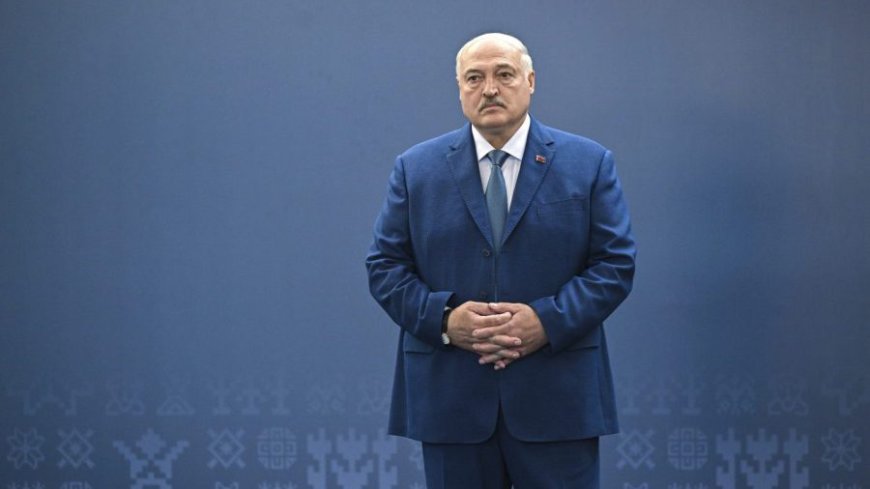Belarus courts the west as its opposition keeps fighting
With so many political prisoners still behind bars, Lukashenko’s selective pardons fall far short of systemic change. Yet they signal a calculated bid to shed pariah status and rebalance Belarus’s dependence on Russia and Vladimir Putin.

On June 21, Belarusian President Alexander Lukashenko, an authoritarian who has ruled the nation since 1994, freed 14 political prisoners, including the husband of exiled opposition leader Sviatlana Tsikhanouskaya.
This happened hours after Lukashenko received U.S. envoy Keith Kellogg in the capital of Minsk. The release of Siarhei Tsikhanouski — known as “Minsk’s number one political prisoner,” who had received the regime’s harshest verdict of 18 years — underscores the high-profile nature of the gesture.
Kellogg’s visit was not his first. On Feb. 12, soon after his initial trip to Belarus, the authorities pardoned three political prisoners, including an American citizen. The June amnesty therefore builds on a pattern linking each wave of releases to Kellogg-brokered diplomacy.
The end of the isolation of the Lukashenko regime, however, does not necessarily mean abandonment of Belarusian opposition.
Every year since she emerged in 2020, Sviatlana Tsikhanouskaya has used major international platforms — from long-form journalism and television interviews to speeches at parliaments, security conferences and her own social channels — to repeat the same demand: freedom for all Belarusian political prisoners. The consistency of that message underlines that freeing everyone, not a token few, is non-negotiable for the democratic movement she leads.
Posting on social media, Tsikhanouskaya thanked President Trump, Kellogg and other partners for securing her husband’s freedom. She added, “We’re not done,” and urged that the remaining 1,186 political prisoners be released as well, a demonstration that the fight against the regime will persist.
With so many political prisoners still behind bars, Lukashenko’s selective pardons fall far short of systemic change. Yet they signal a calculated bid to shed pariah status and rebalance Belarus’s dependence on Russia and Vladimir Putin.
Belarus is the world’s third-largest producer of potash, a key component of fertilizer, but sanctions and Lithuania’s 2022 ban on its using the port of Klaipeda have cut it off from Western buyers. Almost all Belarusian potash now travels by rail through Russia to China and other Asian customers. Because Russia controls this sole export route and competes with Belarus in the same fertilizer market, it can charge premium transit fees, squeezing Belarusian profits and deepening Lukashenko’s dependence on the Kremlin.
Putin’s leverage helps explain why Lukashenko trades high-profile prisoner releases for talks on easing sanctions and restoring cheaper sea access.
Sending Kellogg to Minsk lets Trump advertise an early foreign-policy win: a humanitarian deal, plus a possible opening for Ukraine peace talks. To pull Belarus even slightly out of Putin’s orbit strengthens Trump’s argument that his personal diplomacy can keep Russia in check.
Over 90 percent of the potash used in the U.S. is imported. Top countries for potash exports include Canada, Belarus, China and Russia, with the last three accounting for more than 40 percent of global supply.
Belarus has turned eastward since Western sanctions cut off its traditional routes: China’s share of Belarus’s potash sales surged from 17 percent in 2021 to more than 70 percent in 2023. President Xi Jinping hailed Lukashenko as a “true friend” during the Beijing summit on June 4.
For Trump, who has pursued a consistently hardline stance toward Beijing, the June deal that freed Tsikhanouski also serves as proof that his direct, transactional diplomacy can peel partners away from Beijing while advancing U.S. security aims — whether that is diversifying fertilizer supply chains or kick-starting Ukraine peace talks.
While economic and political calculations may shape how the Trump administration engages with Lukashenko, they do not equate to an end of international criticism of the Lukashenko regime or support for the Belarusian opposition. On March 27, the EU added 25 more officials and seven entities to its Belarus list of 310 individuals and 46 entities under asset freezes and travel bans, keeping Belarus under the same scrutiny as before the prisoner-release diplomacy began. High-level political platforms remain open to Tsikhanouskaya and her allies, and foreign legislatures and multilateral bodies still push accountability.
This international pressure helps to keep the opposition’s cause alive and ensures that the struggle for democracy in Belarus still has external backing.
Tatsiana Kulakevich is an associate professor of instruction in research methods and quantitative analysis at the University of South Florida.
What's Your Reaction?
























